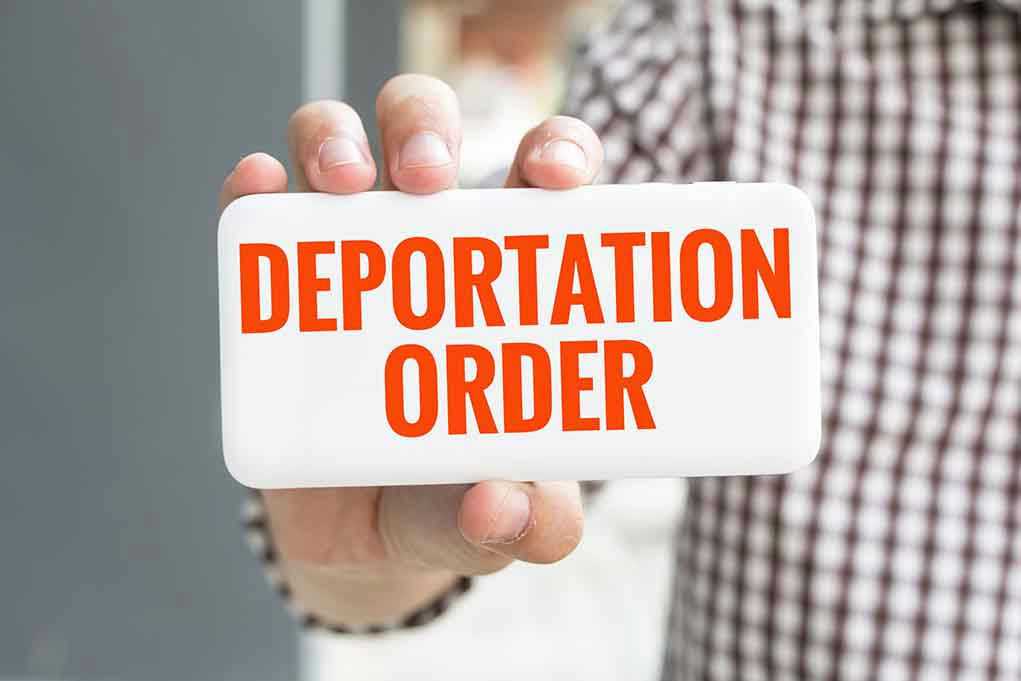
After months of endless hand-wringing and legal delays, the United States has finally completed the deportation of eight criminal illegal migrants to South Sudan—despite a chorus of outrage from activists, bureaucrats, and the usual anti-border crowd who seem to think the Constitution is a punchline.
At a Glance
- Eight felon illegal migrants convicted of violent crimes were deported from the U.S. to South Sudan.
- The Supreme Court sided with the Department of Homeland Security, clearing the way for these removals.
- Human rights groups and legal activists tried to block the deportations, claiming constitutional and humanitarian concerns.
- The administration cites public safety, rule of law, and deterrence as the driving force behind these actions.
Supreme Court Clears Path for Deportations After Years of Stalemate
The Department of Homeland Security announced on July 3, 2025, that the Supreme Court had finally, after a prolonged legal slugfest, ruled in favor of deporting eight convicted felons to South Sudan—an unstable country, no doubt, but apparently the only one willing to take them. These individuals weren’t picked up for jaywalking or overdue library books. Their rap sheets read like a who’s who of violence: homicide, armed robbery, kidnapping, and drug trafficking. For years, advocates and legal groups played every procedural card in the deck to keep these criminals on U.S. soil, arguing that deportation to South Sudan was tantamount to a death sentence and that due process had been trampled underfoot. But the Supreme Court, in a resounding affirmation of executive authority over immigration, decided that enough was enough. The removal orders were executed by July 5, with all eight criminals shipped out, their fate now in the hands of South Sudanese authorities.
It’s no surprise that the Department of Homeland Security hailed the move as a victory for the rule of law and public safety. Assistant Secretary Tricia McLaughlin didn’t mince words, thanking ICE for its “tireless efforts” in finally ridding America of some of its most dangerous illegal residents. On the other side, human rights advocates responded with the usual clamor, calling the deportations punitive, unconstitutional, and a stain on American values. But the facts are stubborn things: these eight individuals were not victims—they were convicted criminals who had long overstayed the hospitality of the American taxpayer.
Deportation Policy: A Return to Sanity or a Step Too Far?
For years, the U.S. has faced an impossible dilemma: what to do with criminal illegal aliens from countries that are either unwilling or unable to take them back. South Sudan, a nation plagued by instability since its 2011 independence, has rarely made the “willing” list, making these removals a logistical and diplomatic headache for every administration since Obama. But the Trump administration, wasting little time, has made it clear that the safety of American citizens comes first—even if it means sending felons back to countries where the hospitality might be less than five-star.
This isn’t the first time America has faced criticism for deporting criminals to unstable regions. Somalia and Haiti come to mind, each time with advocacy groups filing lawsuits faster than Congress can print money. But the Supreme Court’s recent decision marks a turning point, setting a precedent that executive authority in immigration—especially for criminal aliens—trumps the endless parade of legal challenges. The administration’s stance is blunt: if you commit violent crimes here, you don’t get a participation trophy or a sanctuary city; you get a one-way ticket out.
Winners, Losers, and the Real Impact on American Communities
For American communities, the immediate effect is this: eight fewer violent offenders, eight fewer threats, and a small but meaningful restoration of faith that the government can still do its most basic job—protecting its people. For the deportees, life in South Sudan is uncertain, and the U.S. government claims it has secured assurances that they won’t face torture. Whether those promises hold water is anyone’s guess, but the point remains—America’s obligation is first and foremost to its own citizens, not to foreign criminals hoping to game the system.
Politically, this is a win for those who have grown tired of seeing endless resources poured into legal battles that prioritize the alleged “rights” of non-citizens over the safety and security of law-abiding Americans. The cost to South Sudan is real, but the cost to America—socially, economically, and politically—of keeping violent offenders here is far greater. Human rights groups will, no doubt, continue to howl, but for once, the courts and the administration have aligned common sense with the law.
Sources:
Tracking 2025 Changes to U.S. Border Security Policy
What’s in the 2025 Reconciliation Bill So Far?
CBP’s Primary Mission Areas in 2025

